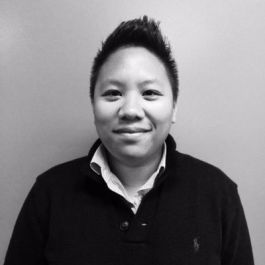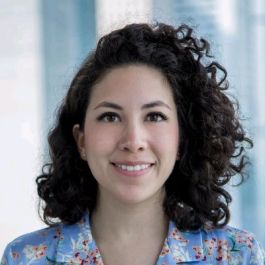When the world shut down in 2020, it was logistics professionals who kept goods moving.
Before the pandemic, few people stopped to consider the impact that supply chain logistics have on everyday life unless a package went missing. Then, Covid-19 stopped public commerce and previously invisible supply chains became more relevant than ever for the average consumer.
While we’d all like to go back to a time where we didn’t have to worry about how a package of toilet paper was going to make its way from the paper mill to our front stoop, there is a hidden benefit here for companies such as project44. The more people consider the impact of logistics in everyday life, the more curious people may be about pursuing a career in the industry.
Project44 is a logistics tech unicorn entering a new phase of global expansion. The company recently closed a $202 million Series E, led by Goldman Sachs Asset Management in June 2021. As it grows, the company is working to foster an inclusive culture to help dismantle the perception of supply chain logistics as a male-dominated field and welcome more women in positions of leadership.
Built In Chicago spoke to new and tenured women leaders at project44 to see what drew them to the organization and how they are paving the way for future leaders at the company.
Describe the logistics industry. What is it like being a woman in leadership in this space?
Director of Engineering Operations Catherine Phee: When we think about supply chain logistics — shippers, retailers, courier networks — it doesn’t sound very sexy, but we use them every day.
With the pandemic, there were a lot of things we took for granted. People were not interested in understanding how everything worked. I remember I ordered some groceries, but there wasn’t anything at my Whole Foods in downtown Chicago. It seemed crazy; it was so empty.
I bring visibility to all of that, and how logistics make it easier for everyone in this ecosystem. Whether you are a man or woman, this touches all of us every day. Now people are more curious about it, and I love it. Here we are, all women, talking about this and having joined this incredible company. We’re trying to change the culture. The supply chain is the future, and I think project44 is leading the way.
When we think about supply chain logistics — shippers, retailers, courier networks — it doesn’t sound very sexy but we use them every day.”
Product Manager Emily Jenkins: In the past two years, there has been the realization that this is a very important space. Up until now, only a select group has been thinking about it. For most people, if a package shows up at your door, great. It’s only when a package doesn’t show up that you start worrying and thinking about it.
With that importance, we’ve seen an influx of applicants coming to join us, and I think project44 is at the top of getting women involved. Now that it’s become an active part of our lives, and more people are considering its importance, a lot of women want to help fix that and we’re seeing better representation.
Describe the culture at project44. How is the organization welcoming to women in tech?
Creative Director Luz Ashby: I feel a lot of trust. That is very important, especially being a director and being a woman; sometimes you get questioned more about decision making. For me, trust is a very good thing. I’m here because of what I’ve accomplished in my career, and I’ve worked very hard for that. That’s something project44 has not taken for granted, which I appreciate. Sometimes as women we work hard, but we don’t get acknowledged as much. I appreciate that from this company.
Phee: Project44 is entering a global expansion phase, where everything has to scale. We need all of the teams to stay aligned and connected, and that works with the culture they have established here. They are very transparent and motivating. We talk with people across continents here, so it’s very connected. For women especially, what I think they are doing well is simply just listening. That’s what I’ve been seeing on my side.
Jenkins: We have great leaders on the executive team who have made it part of their mission to be more inclusive. At our monthly town hall meetings, we have updates on hiring and diversity and we are held accountable for that. It’s not just that we say, “Oh, we want to meet these metrics.” But we track it and follow through. Once you join the company, it stays that way; it’s not just a catch to get you to join because we say we’re diverse. Rather, there are opportunities for women continually. I think the first week I started, the company sponsored a Women In Tech conference in Chicago and all of the women were encouraged to go and attend the conference. So there are career advancement opportunities like that, too.
On the flip side, there is the social aspect of feeling welcomed and supported. We have a Slack channel for women at project44 across all of the different offices. The Chicago office is having a cooking class this week at Merchandise Mart, and we’re doing a happy hour. There are always a lot of activities to make sure we all feel like we’re in it together. We’re having fun and working hard.
What are some of the biggest milestones or standout moments you’ve seen in terms of gender diversity?
Jenkins: From the time I started, I have noticed that our product team has evolved so it is now roughly 50-50 men and women. That is the most equal split I’ve ever seen at any of the companies I’ve ever worked for.
I was conducting an interview a year ago for someone who is now a colleague of mine. At the end, when I asked if he had any questions, he specifically asked, “How are women treated at this company, and what is the diversity like?” After doing a ton of interviews, this was the first time I was asked that, especially by a man, and I thought it was great that we are attracting the kind of talent who cares about that.
Phee: It’s been two months since I joined and when I’ve joined the town halls, I have seen women in leadership roles growing. It’s good to see those changes and more women speaking up. It’s good to see women taking leads on projects, and you can see that they are making an impact.
Ashby: I came from finance, which was very male-driven. When I came to the interview I was looking for a better culture. That is something I have with my current supervisor. We discussed that, for me to make this career move, I had to be sure it was the right one. I said that I don’t want to be in a position where I’m not trusted. I noticed that I had an all-male panel of interviewers, which was a concern, but I talked to the hiring manager about it and found that there were other women in the process for leadership roles as well, and he revealed that his direct reports are mostly women. I am excited to see that change.
What are the goals you are most excited about at project44?
Phee: When I was hired, I made it a priority for myself to increase gender diversity on our side, starting with the new site reliability engineering team that I’m building. I’ve reached parity today with the talent I’ve recently hired. That is something that I’m proud of.
If you want to increase diversity, it starts with the hiring manager, and they work with the recruiting team to make it happen. Even if it takes more time — especially in the SRE world, where it is mostly men — there are always going to be people who are the best of the best. And usually, women in tech — when you can find them — are some of the best.
Jenkins: Right now I am working with an engineering team that is focused on sharing visibility with our customers to see inbound shipments coming to their warehouses so they can prepare. So for example, with the toilet paper shortage in the past year, obviously companies want to make sure they have toilet paper in stock in their warehouses. But, there’s a point where you might have too much, which creates overhead and expensive costs. Or you might not have enough, which results in a shortage. Providing visibility allows their partners in the supply chain to share data to ensure that they have the full picture, so there’s not a space where they are just sitting and waiting for a truck to come into the warehouse.
I work with a team of seven engineers, and three of them are women, which is worth calling out. This is the most diverse engineering team I’ve ever worked with. We have a bit of “Girl Power,” and we love it. All of us come together to work through problems and solve them. It’s nice — we work with the men on the team and they respect us. There is no power dynamic in there at all. We’re all solving the same problem. We know what our goals are and value opinions from everyone on the team.
What are some of the tools and supports in place for professional growth at project44? How does the company nurture leadership?
Ashby: There are a lot of opportunities to set goals, and management is very invested in giving us the tools to achieve those goals. They ask what we need, where we see ourselves and how they can help us get there. That is very important here. When I interviewed, I asked if there was potential for growth in my position. I’ve seen my coworkers have made moves, and I think that’s very good. It is an example of what we can do. They want to see us happy, and they want to see us grow to our full potential.
What kind of support do you receive from leadership, especially as a woman in tech and logistics?
Jenkins: There are a lot of women in leadership roles at project44 who advocate for other women. For example, the marketing team asked me to hold a webinar about inbound visibility, so there is a lot of encouragement to get women out as faces of the company. We aren’t just behind the scenes doing all of the work; we are there to present findings and share the great stuff we are achieving.
Phee: From my previous life before project44, the most important support has been ensuring that we have a voice and people listen. Sometimes women are not taken seriously. Every woman out there in a leadership role wants to achieve high performance. Sometimes it’s difficult to achieve that when you don’t sound or feel confident, or you don’t have a plan.
Ashby: The key words here are that there are women in leadership roles. Oftentimes, women don’t get recognized because they don’t have other women helping advocate and elevate them. We have that opportunity here. If someone is climbing a mountain, they can give you a hand and you can climb together. They have fought hard for those roles, so they understand how it is for the rest of us. It’s great that we help each other.
I am seeing bigger tech companies starting women’s diversity groups, which is great that they are doing something. But there is a problem with the visibility of women. I’ve seen a lot of women in tech leadership roles in webinars, but not everybody that works in tech has that opportunity. Now, I feel very safe and secure that this was a good decision for my career. It is a platform that will elevate me as a tech leader, as a designer and as a woman.
The key words here are that there are women in leadership roles.”
How do you think the industry can continue building a better future for women in tech?
Jenkins: It’s important to know that the loudest person in the room doesn’t necessarily have the best ideas. Sometimes, I think that women can feel like they are forced to the back burner if they are not the loudest, most passionate, yelling person in the meeting. It’s important to make sure that we’re not letting our voices get lost, and remember that what we have to say is valid.
Ashby: If you have made it to a position where you are heard, pass the mic to someone else who doesn’t always have that chance. We help each other to make a safe space for women to feel comfortable expressing their ideas through leading by example.








